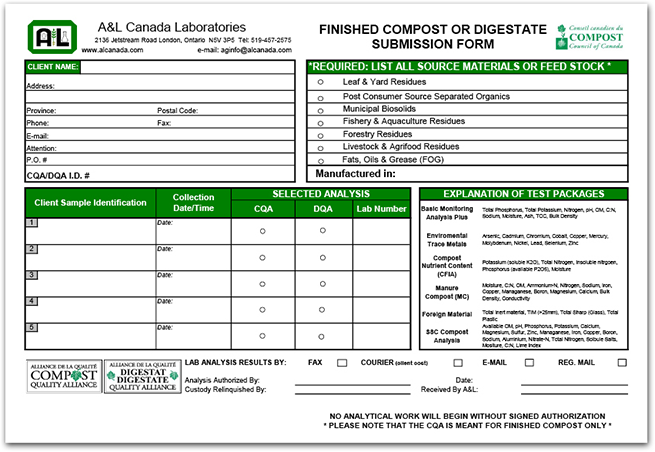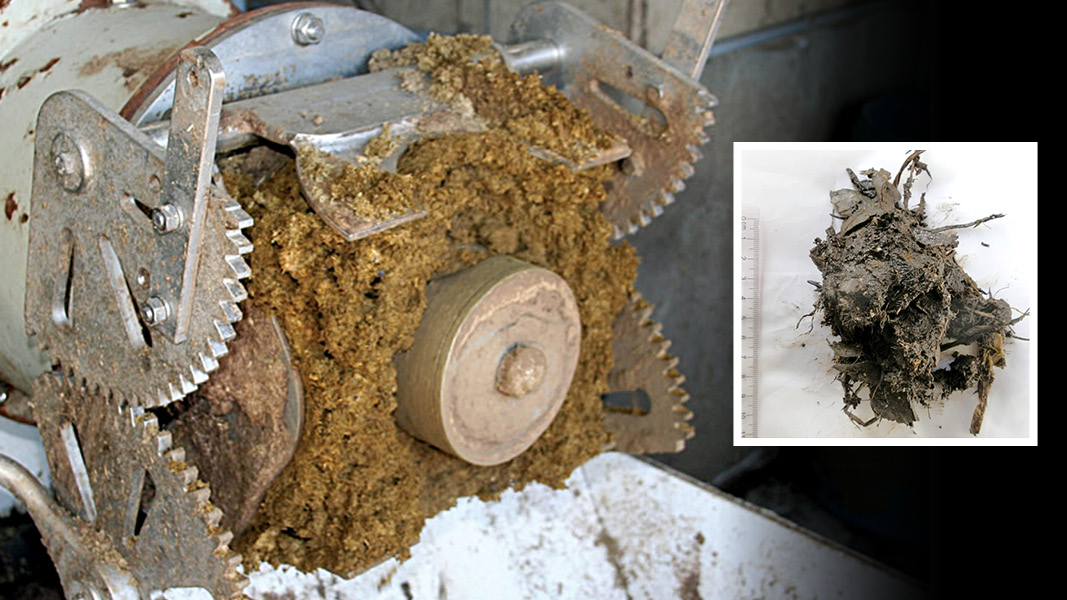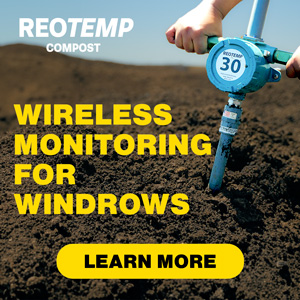Top: Examples of digestate solids. Photo courtesy of Harvest Power
The Compost Council of Canada has added digestate to its Quality Assurance Program (QAP), which originally was established for compost. A proactive, voluntary program for members of the organics recycling industry across Canada, the QAP incorporates testing for both regulatory compliance and the identification of the agronomic attributes to assure market and soil success. The analytical reports also enable the producer and end user to better understand the economic value of the compost and digestate, based on the macro- and micro-nutrients contained therein.
Known as the Compost Quality Alliance (CQA) and Digestate Quality Alliance (DQA), the program builds on the nearly two decades of lab-testing and market development experience, spearheaded by members and supporters of the Compost Council of Canada (CCC), including A&L Canada Laboratories, regulators and end users. “Providing a quality assurance program that includes both digestate and compost is a natural combination for our industry,” notes Larry Conrad, Chair of the CCC’s National Board of Directors. “Our industry uses different recycling technologies but our common focus is to return quality organic matter back to our soils. The CQA/DQA program helps us with regulatory compliance and provides product confidence with our end users, increasing the value of our end products and hence the financial strength of our industry.”
 The CQA/DQA program, which focuses on product versus process, is open to all organics recycling processors involved in producing compost and/or digestate. It is managed by the CCC with the support of other organizations and marketed through their initiatives as well as those of the licensees. Participants follow prescribed sampling frequency and reporting methods. An annual licensing arrangement is established to use the CQA/DQA logo on packaging and product promotion.
The CQA/DQA program, which focuses on product versus process, is open to all organics recycling processors involved in producing compost and/or digestate. It is managed by the CCC with the support of other organizations and marketed through their initiatives as well as those of the licensees. Participants follow prescribed sampling frequency and reporting methods. An annual licensing arrangement is established to use the CQA/DQA logo on packaging and product promotion.
“The organics recycling industry is uniquely positioned to make a major contribution to environmental sustainability in general, and climate-change mitigation and adaptation in particular,” says Susan Antler, CCC’s Executive Director. “It is essential that the soil-destined products of our industry — compost and digestate — be consistently of high quality. It is also important that the users of these products — farmers, landscapers, gardeners and many other soil managers — can be assured of that quality. We look forward to working with and involving all advocates of organics recycling and fellow organizations to make this program work well for our collective industry.”













